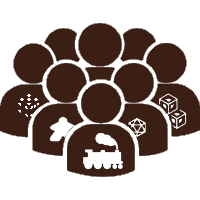The Dungeon Masters Guild Creators' Circle is a moderated Facebook group for DMsGuild community content contributors. The DMsGuild is a storefront on the OneBookShelf platform dedicated to D&D 5E. Publishing here is under a different agreement than the OGL and there are other restrictions and a higher rate to WotC. If you already contribute or intend to create content for the DMsGuild, you need to be a member of this group. The best and brightest of the DMsGuild creators are active in this group and will impart their wisdom, and community opportunities abound for one who is willing to contribute. If you belong to this group, you will also want to join the Dungeon Masters Guild Facebook group, which is moderated by WotC.
However, if you have a general interest in RPG design or publishing on other platforms, there are groups better suited for those interests. The discussion on DMGCC is limited to the DMsGuild platform. Most of the contributors to this group are active in other groups, so their wisdom will not be hidden from you.












